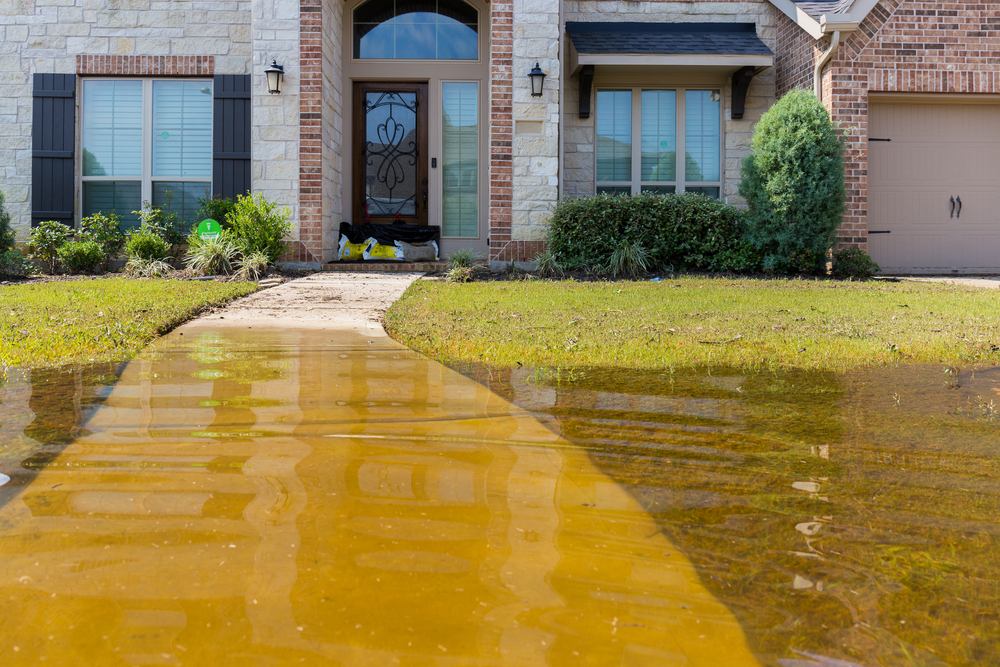The Fine Print That Could Cost You Thousands: Understanding Your Property Insurance Policy
Insurance policies are notorious for their complex language and hidden clauses that can significantly impact your claim. With Texas homeowners facing insurance rate increases of up to 30% in 2025, understanding exactly what’s in your policy has never been more crucial. These rate hikes, combined with increasingly restrictive policy terms, have left many property owners vulnerable when disaster strikes. Whether you’re dealing with hurricane damage, water issues, or fire losses, the success of your claim often hinges on details buried deep within your policy that most homeowners never read until it’s too late.
Don’t let the fine print catch you off guard when disaster strikes. Reach out to JCE Law Group for a thorough review of your property insurance policy and ensure you’re fully protected. Call us at 504-754-5884 or contact us today to safeguard your rights and maximize your claim potential.
Texas Property Insurance Laws: Rights Every Homeowner Should Know
Texas insurance law provides important protections for policyholders, but you need to know these rights to exercise them effectively. Under the Texas Insurance Code, insurance companies must process claims in good faith and in a timely manner. Specifically, insurers must acknowledge your claim within 15 days of receiving it and must accept or reject your claim within 15 business days after receiving all necessary documentation (though this period can be extended in some circumstances). Insurance companies that violate these provisions may be liable for additional damages beyond your claim amount. However, many property owners don’t realize that Texas law also allows insurance companies significant leeway in how they structure policies and what exclusions they include—which is why understanding the specific terms of your policy is essential before disaster strikes.
Critical Timeline: From Property Damage to Successful Claim Resolution
Navigating the claims process requires understanding key deadlines and procedures. Missing these critical windows can jeopardize your entire claim, regardless of the actual damage sustained. Here’s what you need to know about the timeline for property insurance claims in Texas:
-
Immediate notification requirement: Most policies require you to notify your insurer “promptly” or within 24-72 hours of discovering damage—a provision that’s commonly used to deny claims when homeowners delay reporting.
-
Documentation deadlines: Many Houston policies contain little-known clauses requiring you to submit complete inventory lists within 30 days of the loss—a particularly challenging requirement after major disasters when access to property may be restricted.
-
Proof of loss submission: Texas insurers typically require formal proof of loss documentation within 60 days, but many Houston-area policies have shortened this to just 30 days in recent years.
-
Statute of limitations: You must file a lawsuit for breach of contract within two years from the date your claim was denied in Texas—not from the date of the damage as many assume.
Overcoming Insurance Claim Denials: How Professional Representation Makes a Difference
When facing a claim denial, having specialized legal representation can dramatically improve your chances of a fair resolution. A property insurance lawyer in Houston can identify when carriers are misinterpreting policy language or applying exclusions improperly. At JCE Law Group, we regularly see insurance companies attempt to apply exclusions that don’t actually apply to the specific circumstances of the loss. For example, many insurers try to categorize water damage as “flood damage” (typically excluded) when it actually qualifies as covered water damage from burst pipes or roof leaks. Insurance companies count on policyholders not understanding these distinctions. Having a legal team review your denial letter can reveal whether the insurance company is misapplying policy terms or failing to consider evidence that would support coverage. The difference between accepting a denial and challenging it with knowledgeable representation can mean the difference between receiving nothing and recovering the full value of your claim.
The Most Commonly Misunderstood Insurance Policy Clauses in Texas
Property insurance policies contain several provisions that frequently lead to claim denials when misunderstood by policyholders. Understanding these clauses before you need to file a claim can significantly improve your chances of coverage. Texas property policies have become increasingly complex, with new limitations introduced each year that gradually reduce coverage while maintaining or increasing premiums.
Anti-Concurrent Causation Clauses: The Hidden Coverage Killer
Perhaps the most damaging clause in modern property insurance policies is the anti-concurrent causation provision. This clause states that if damage results from both a covered and non-covered peril, the entire claim can be denied. For example, if wind (covered) damages your roof and then rain (also covered) enters through the damaged roof, but there’s also minor flooding (not covered), the insurer might deny the entire claim—even the portions that would normally be covered. We’ve seen countless Houston homeowners shocked when their claims are denied based on this provision, especially after hurricanes when multiple types of damage often occur simultaneously. The courts have generally upheld these clauses, making them particularly dangerous for policyholders who don’t understand their implications.
Replacement Cost vs. Actual Cash Value: The Devaluation Trap
Many Texas homeowners believe they have “full coverage” when their policy actually contains provisions that significantly reduce payments. According to the Texas Department of Insurance, approximately 65% of property owners don’t understand the difference between replacement cost and actual cash value coverage. This misunderstanding leads to thousands of dollars in unexpected out-of-pocket expenses when claims are settled. Understanding which type of coverage applies to different parts of your property is essential for accurately assessing your financial protection.
Roof Coverage Limitations: Age-Based Deductions and Exclusions
Roof claims represent the area where insurers have most aggressively reduced coverage in recent years. Many newer Texas policies now include separate roof deductibles, age-based coverage limitations, and cosmetic damage exclusions. For instance, a common clause in Houston policies states that roofs over 10 years old will only be covered at actual cash value, regardless of the coverage type for the rest of the property. This means that a 12-year-old roof with an expected 20-year lifespan could be depreciated by 60% or more—leaving you to pay the difference out of pocket. Some policies even include “cosmetic damage exclusions” that allow the insurance company to deny coverage for hail damage that affects appearance but doesn’t immediately impact functionality, even though such damage reduces the roof’s lifespan and would trigger replacement under standard building codes.
Mandatory Arbitration and Appraisal Provisions: Limiting Your Legal Recourse
One of the most significant recent changes to Texas property insurance policies is the increased inclusion of mandatory arbitration and appraisal provisions. These clauses can effectively prevent you from taking your case to court when disputes arise. Understanding how these provisions work is critical for protecting your rights during claim disputes.
Appraisal Clauses: The Process Insurance Companies Prefer
Appraisal clauses require that disputes over the amount of loss be resolved through an appraisal process rather than litigation. While this might sound reasonable, the process often favors insurance companies. Both you and your insurer select appraisers, who then select an “umpire” to resolve any differences. The appraisal determines the amount of loss, but importantly, it doesn’t address coverage disputes. This means the insurance company can still deny your claim even after an appraisal establishes the damage value. Many Texas policyholders don’t realize that once the appraisal process is invoked, they’re generally bound by the outcome, which can significantly limit their ability to challenge underpayments through the court system.
Frequently Asked Questions
1. What are the most important steps to take immediately after property damage in Texas?
Document everything thoroughly with photos and videos before making any repairs. Notify your insurance company immediately—ideally within 24 hours—as most Texas policies require “prompt notice.” Keep all receipts for emergency repairs and additional living expenses. Review your policy to understand reporting deadlines, as these vary significantly between insurance companies. Finally, consider consulting with a property insurance lawyer in Houston before submitting formal documentation if you anticipate your claim might be complex or involve significant damage.
2. Can an insurance company in Houston legally deny my claim because I missed a deadline I didn’t know about?
Yes, Texas courts generally uphold policy deadlines even if you weren’t specifically aware of them. Your policy is considered a binding contract, and you’re expected to know its terms. Common deadlines include the initial reporting window (often 24-72 hours), submission of inventory lists (typically 30-60 days), and formal proof of loss documentation (usually 60 days, but sometimes less). A Texas property coverage lawyer can sometimes challenge these denials if the company failed to provide required disclosures or if you can demonstrate that the delay didn’t prejudice the insurer’s investigation.
3. What’s the difference between replacement cost and actual cash value in Houston property policies?
Replacement cost coverage pays to repair or replace damaged property with materials of similar kind and quality at current market prices. Actual cash value coverage pays the depreciated value of the damaged property based on its age and condition. The difference can be substantial—for example, a 10-year-old roof might only receive 50% of its replacement cost under actual cash value coverage. Many Houston insurance terms are written to provide replacement cost for the dwelling but actual cash value for personal property, outbuildings, or roofs over a certain age. Always check which type applies to each component of your property.
4. How long does the insurance claim process typically take in Texas?
Under Texas law, insurance companies must acknowledge your claim within 15 days and make a decision within 15 business days after receiving all necessary documentation (though this can be extended to 45 days with proper notice). In practice, complex claims often take much longer, especially after widespread disasters. The Houston claim filing process typically takes 30-90 days for straightforward claims with no disputes. If there are disagreements about coverage or damage valuation, the process can extend to 6-12 months, particularly if you need to involve a Houston insurance claim attorney to challenge a denial or underpayment.
5. Should I accept the first settlement offer from my insurance company for property damage?
It’s generally not advisable to accept the first offer without careful review. Insurance adjusters typically start with conservative estimates that may not fully account for all damages or necessary repairs. Before accepting any settlement, have an independent contractor review the damage and provide a separate estimate. Compare this with your insurance company’s offer to identify any discrepancies. Remember that Texas insurance rights include the ability to challenge inadequate settlements. Many Houston homeowners benefit from having a property insurance Houston TX attorney review settlement offers before accepting them, especially for claims exceeding $10,000.
Work with a Property Insurance lawyer
When dealing with complex insurance policies and disputed claims, professional legal representation can make a significant difference in the outcome. A property insurance lawyer in Houston brings specialized knowledge of both insurance law and common carrier tactics used to minimize payouts. An experienced attorney can review your policy before you file a claim to identify potential issues, help properly document your loss to maximize coverage, and challenge improper denials or underpayments. JCE Law Group offers comprehensive Houston coverage review services to identify problematic clauses before claims occur. When selecting legal representation, look for attorneys with specific experience in property insurance claims rather than general practice lawyers, as insurance law contains many specialized rules and precedents. Most property insurance attorneys work on contingency fees, meaning you don’t pay unless they recover money on your behalf, making professional representation accessible even when you’re facing financial challenges after property damage.
Don’t let hidden clauses in your property insurance catch you off guard. Connect with JCE Law Group to ensure your policy is airtight and your rights are protected. Give us a call at 504-754-5884 or contact us today to secure peace of mind and maximize your claim potential.


